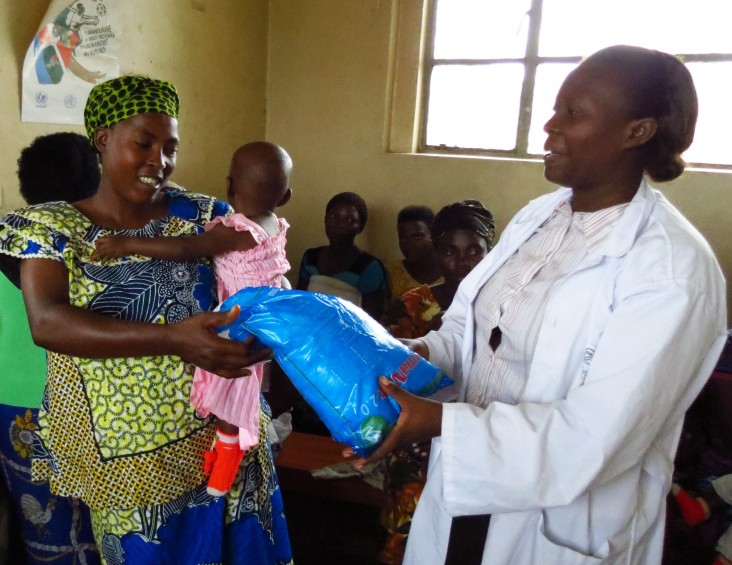
Clad in a rainbow of colors and frills, the moms spill from the waiting rooms into the corridor, holding babies who are bouncing, sleeping and crying.
It’s a busy day at a clinic outside Bujumbura, Burundi. It’s the day that women can come for antenatal checkups, bring their babies and small children for vaccinations—and receive insecticide-treated mosquito nets.
When asked whether bed nets really do prevent malaria, the mothers shout a chorus of responses:
“Yes, they are important!”
“That’s one of the reasons why we came.”
“They keep us healthy.”
One response in particular stands out: “We’ve slept under a net for six years now. In my family, before that, each person would get malaria three or four times a year. Now we go from one year to the next with no one getting sick.”
Net distribution at antenatal clinics and nationwide on immunization days is a key part of the Government of Burundi’s Malaria Control Program since pregnant women and children under 5 are the most vulnerable to malaria. Eighty-five percent of the nets distributed nationwide are donated by USAID. Over the last four years, since 2009, the Agency has donated 2,375,000 bed nets.
In addition, in a ground-breaking pilot program which began in 2010, USAID has trained over 402 community-level health workers to quickly diagnose malaria in children using rapid tests and immediately treat those who test positive, saving many lives.
Since 2000, malaria-related mortality rates have fallen by more than 20 percent at the hospital level and morbidity has dropped by 30 percent.
“We are proud to have helped Burundi accomplish a dramatic reduction in malaria deaths,” said Dawn Liberi, U.S. ambassador to Burundi. “Though there’s more to do, this is a striking success of the partnership between the American and Burundi people.”
USAID supports the Government of Burundi’s strategy to reduce malaria throughout the country, improving maternal and child health.







Comment
Make a general inquiry or suggest an improvement.